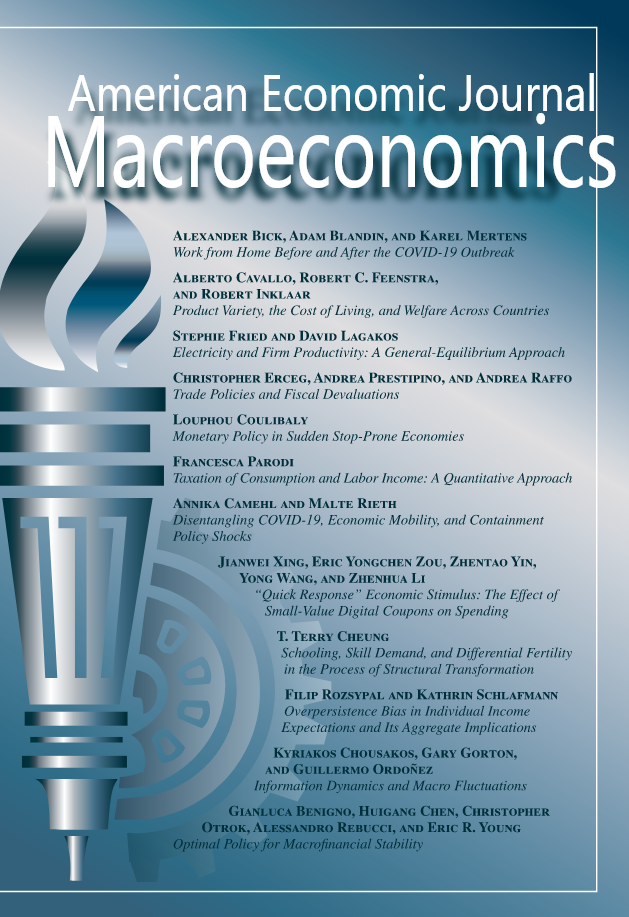了解债务危机
IF 5.7
1区 经济学
Q1 ECONOMICS
引用次数: 7
摘要
欧洲债务危机对我们对政府债券收益率与经济基本面之间关系的理解提出了挑战。我认为,信息摩擦是一个重要的缺失因素,并用2008年后GDP预测误差演变的证据来支持这一说法。我建立了一个主权违约的定量模型,其中的输出特征是罕见的灾难,代理学习它们的实现。债务危机与经济萧条同时发生,并随着市场对未来收入预期的更新而逐渐发展。根据葡萄牙经济进行校准后,该模型复制了2008年前后债券息差和产出的走势。(e23, e27, e32, e43, f34, h63)本文章由计算机程序翻译,如有差异,请以英文原文为准。
Learning about Debt Crises
The European debt crisis presents a challenge to our understanding of the relationship between government bond yields and economic fundamentals. I argue that information frictions are an important missing element and support that claim with evidence on the evolution of GDP forecast errors after 2008. I build a quantitative model of sovereign default where output features rare disasters and agents learn about their realizations. Debt crises coincide with economic depressions and develop gradually while markets update their expectations about future income. Calibrated to the Portuguese economy, the model replicates the comovement of bond spreads and output before and after 2008. (JEL E23, E27, E32, E43, F34, H63)
求助全文
通过发布文献求助,成功后即可免费获取论文全文。
去求助
来源期刊

American Economic Journal-Macroeconomics
ECONOMICS-
CiteScore
8.20
自引率
1.70%
发文量
58
期刊介绍:
American Economic Journal: Macroeconomics focuses on studies of aggregate fluctuations and growth, and the role of policy in that context. Such studies often borrow from and interact with research in other fields, such as monetary theory, industrial organization, finance, labor economics, political economy, public finance, international economics, and development economics. To the extent that they make a contribution to macroeconomics, papers in these fields are also welcome.
 求助内容:
求助内容: 应助结果提醒方式:
应助结果提醒方式:


